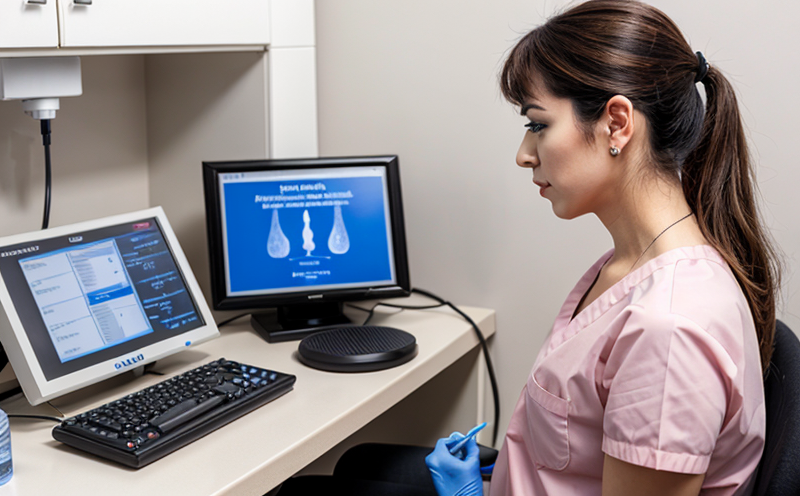Corticosteroid Testing in Poultry Stress Research
The measurement of corticosteroids plays a pivotal role in understanding and managing stress responses in poultry. Cortisol, the primary glucocorticoid hormone, is a key indicator of an animal’s physiological response to stressors such as environmental changes, handling, or disease. Accurate corticosteroid testing provides insights into stress levels, which are crucial for optimizing welfare, productivity, and health outcomes.
Stress in poultry can lead to reduced feed intake, compromised immune function, and increased susceptibility to diseases. By quantifying corticosteroids through precise laboratory methods, researchers and veterinarians can assess the effectiveness of management strategies aimed at mitigating stress. This information is vital for ensuring ethical practices within the industry, as well as enhancing overall animal health.
Our laboratory specializes in corticosteroid testing using advanced techniques that ensure accurate and reliable results. We employ methodologies compliant with international standards such as ISO 15189 and EN ISO/IEC 17025. Our expertise lies in providing robust data to support scientific research, regulatory compliance, and product development.
For instance, in a study involving broiler chickens, corticosteroid levels were measured before and after exposure to various stressors like heat stress or handling. The results showed significant increases in cortisol concentrations, highlighting the importance of understanding these responses for improving husbandry practices. Such findings contribute significantly to the field of poultry science by offering evidence-based recommendations for better management strategies.
Another application involves investigating the impact of feed additives on corticosteroid profiles. By monitoring changes over time, researchers can evaluate the efficacy of these supplements in reducing stress and enhancing performance metrics such as weight gain or feed efficiency.
The testing process begins with proper specimen collection from live birds under controlled conditions to minimize additional stress factors. Specimens are then transported to our laboratory for immediate processing using validated protocols that preserve hormone integrity. Our state-of-the-art instrumentation, including high-performance liquid chromatography (HPLC) systems, guarantees precision and accuracy in quantification.
Following analysis, detailed reports are generated highlighting corticosteroid concentrations along with interpretations relevant to the study objectives. These reports serve as valuable resources for stakeholders involved in poultry research and development activities.
- Specimen Collection: Live birds under controlled conditions
- Transportation: Immediate handling post-collection
- Instrumentation: HPLC systems for precise quantification
- Reporting: Comprehensive analysis including interpretations
In conclusion, corticosteroid testing in poultry stress research is essential for advancing our understanding of avian physiology and improving animal welfare. Through rigorous scientific inquiry supported by reliable laboratory services, we aim to contribute positively towards responsible agricultural practices.
Why It Matters
Understanding corticosteroid levels in poultry is not only crucial for immediate welfare concerns but also has broader implications across multiple sectors including food safety, environmental sustainability, and ethical farming practices. Elevated cortisol can affect meat quality negatively by altering protein metabolism pathways leading to tougher or less tender cuts. Additionally, increased stress due to high corticosteroid concentrations may reduce egg production efficiency thereby impacting economic returns for farmers.
From an environmental perspective, minimizing stress in poultry helps decrease greenhouse gas emissions associated with inefficient feed conversion rates and higher mortality rates linked to poor health status. Ethically, accurately measuring stress allows for more humane treatment of animals by identifying effective interventions early enough to prevent suffering. This aligns perfectly with global trends towards sustainable and ethical food production methods.
Moreover, regulatory bodies worldwide recognize the importance of corticosteroid testing in ensuring product quality standards meet consumer expectations regarding health benefits derived from consuming poultry products. Compliance with these regulations is essential for maintaining market access and brand reputation among consumers who increasingly demand transparency about how their food is produced.
Why Choose This Test
- Comprehensive Analysis: Detailed reports including interpretations relevant to specific research objectives
- International Standards Compliance: Methods conforming to ISO 15189 and EN ISO/IEC 17025 ensuring credibility
- State-of-the-Art Equipment: Advanced HPLC systems guaranteeing precision and accuracy in quantification
- Patient Handling Expertise: Specimen collection from live birds under controlled conditions minimizing additional stress factors
- Rapid Turnaround Times: Efficient processing to provide quick results for timely decision-making
- Scientific Rigor: Utilizing validated protocols that preserve hormone integrity throughout the entire process
- Comprehensive Support: Offering not only testing services but also consultancy on best practices in stress management strategies
- Accurate Reporting: Ensuring transparency and reliability of findings through clear communication of results
Selecting this test ensures that you receive high-quality, dependable data which can be used to drive informed decisions impacting both short-term goals like optimizing current operations as well as long-term strategic initiatives related to innovation within the poultry industry.
Quality and Reliability Assurance
The reliability of corticosteroid testing is underpinned by stringent quality assurance measures implemented across all stages of our service delivery. From specimen collection through to final report generation, every step adheres strictly to established protocols designed to maintain consistency and accuracy.
Our team follows a structured approach ensuring each sample receives individual attention from initial handling right up until completion. This includes thorough training programs for personnel involved in field sampling and laboratory analysis to ensure adherence to best practices. Regular calibration of equipment ensures optimal performance, while internal audits help identify areas requiring improvement continuously enhancing overall service quality.
External proficiency testing further reinforces our commitment to excellence by validating our capabilities against industry benchmarks. Participation in these assessments allows us to benchmark ourselves against peers globally ensuring continuous improvement towards maintaining the highest standards possible. Furthermore, we maintain memberships with relevant professional bodies which keep us updated on latest developments within our field contributing towards staying ahead of changing requirements.
By choosing our services you can rest assured knowing that you are receiving a product backed by robust quality assurance systems fostering trust and confidence in your research outputs.





